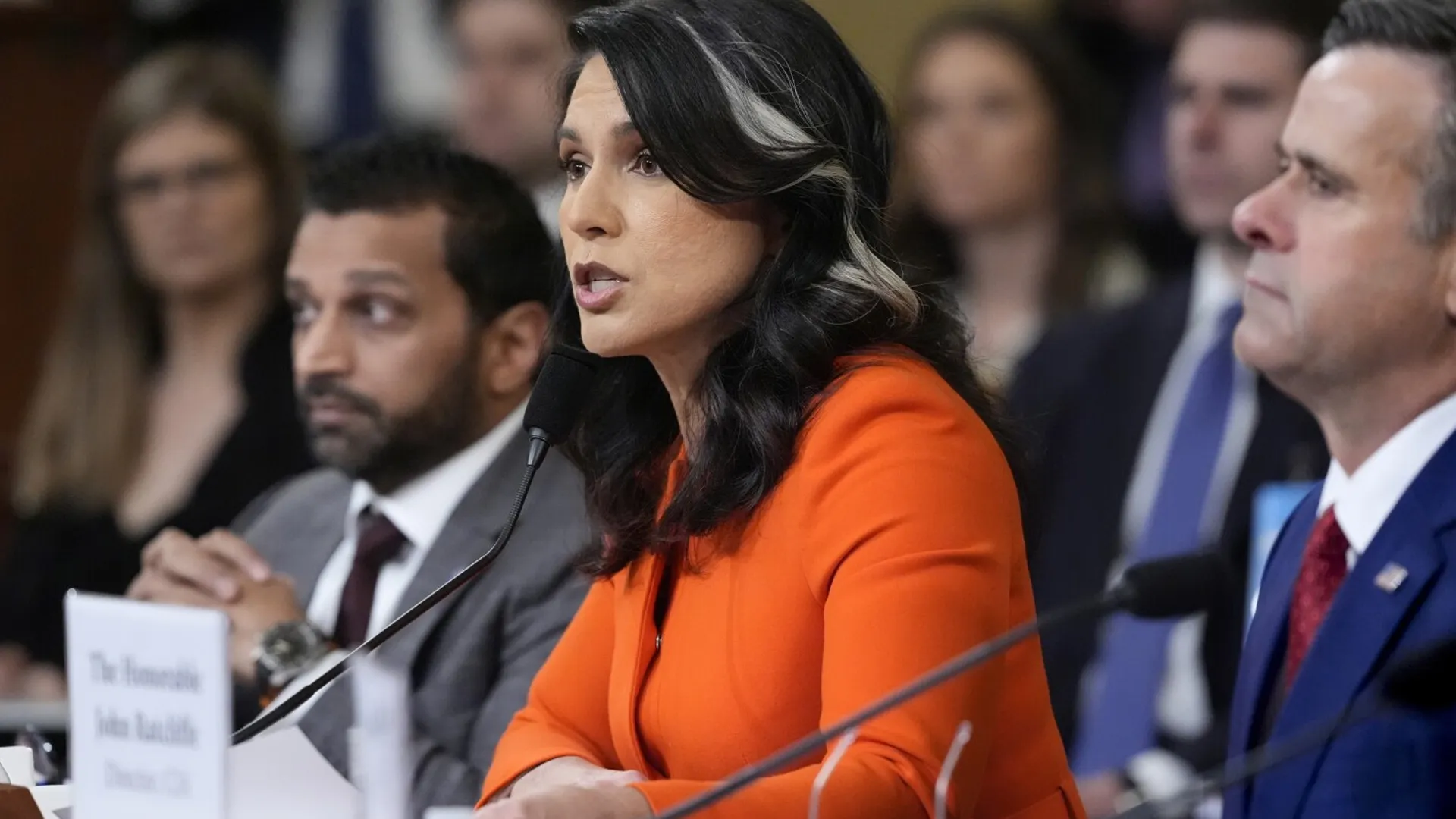The highest-ranking Democrat on the U.S. Senate Intelligence Committee, Virginia Senator Mark Warner, expressed strong reservations on Thursday about a new task force established by Director of National Intelligence (DNI) Tulsi Gabbard. He cautioned that the group could be operating as a political vehicle to identify intelligence officers deemed disloyal to former President Donald Trump.
“This seems to be just a pass for a witch hunt and that’s going to further undermine our national security,” Warner said in a Reuters interview. Although he did not provide concrete evidence, Warner underlined his concern about the absence of traditional briefings from the DNI office.
Gabbard’s spokesperson, Olivia Coleman, dismissed the characterization. Tulsi Gabbard had been “crystal clear” on the Director’s Initiative Group (DIG) and the purpose of DIG, Coleman stated. “Plentiful information has already been released,” Coleman said, citing Gabbard’s announcement of the task force on Tuesday, an interview with Fox News on Wednesday, and comments during a cabinet meeting on Thursday.
DIG Charged with Examining ‘Weaponization’ and Politicization of Intelligence
DIG, Gabbard said, was created to boost “transparency and accountability” in U.S. intelligence agencies and falls in line with Trump’s executive orders. The group is charged with examining what she describes as the “weaponization” of intelligence, eliminating politicization, disclosing leaks of classified material, and declassifying materials for the public good.
She said the task force comprises “some of the most skilled intelligence officers” and has been active at least since January, pointing to initial projects conducted by the team before its official public debut this week.
Among DIG’s efforts, Gabbard cited the January declassification of intelligence on the COVID-19 origins and the formerly classified documents on the John F. Kennedy assassination, released in mid-March. She also unveiled at a cabinet meeting that her staff was getting ready to release records about Martin Luther King Jr.’s and Senator Robert F. Kennedy’s assassinations.
Task Force Also Investigating 2016 Election Interference Narrative
Gabbard went on in her Fox News interview to say that DIG is looking into what Trump and his supporters describe as the “Russia collusion hoax”—a term referencing U.S. intelligence reports finding Russia interfered in the 2016 presidential election on behalf of Trump.
That determination was reaffirmed by a bipartisan Senate Intelligence Committee report published in July of 2018. The committee at the time was chaired by Senator Marco Rubio, now Trump’s Secretary of State.
Call for Oversight of Expanding Intelligence Powers
Warner, a member of the intelligence panel for years, said the creation of DIG without congressional approval highlights the necessity of a thorough review of the Office of the Director of National Intelligence. That office was created in 2005 to offer coordination among the 18 various U.S. intelligence agencies.
The Virginia senator warned that without proper checks, such initiatives could spiral into politicized efforts with lasting damage to national security. He also noted the absence of traditional briefings from the DNI’s office under Gabbard, which had been a norm under her predecessors.
While the political and intelligence communities are responding to the advent of DIG, there are questions regarding its long-term function, accountability, and degree to which it will influence domestic intelligence activities and public confidence in such institutions.






















